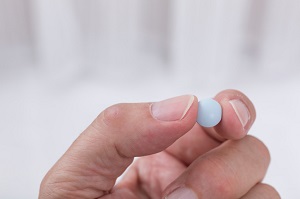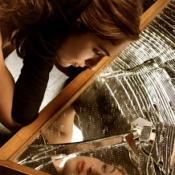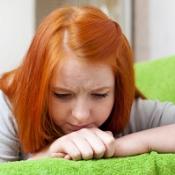 Disclaimer: Please be informed that although I am opinionated on the subject of medication and psychotherapy as forms of treatment, I am not a physician and I do not prescribe medication. I am not authorized to make, nor do I make, prescriptions or recommendations to anyone about the use, type, frequency, and dosage of medication. The following is commentary on my experience and knowledge about the differences and interactions between medication and psychotherapy as mediums of healing. If you are in need of information about medication, or if you want to alter the use, type, frequency, and dosage of your medication, I strongly advise you to consult with your prescribing physician. Doing otherwise could be harmful to your health and could endanger your life.
Disclaimer: Please be informed that although I am opinionated on the subject of medication and psychotherapy as forms of treatment, I am not a physician and I do not prescribe medication. I am not authorized to make, nor do I make, prescriptions or recommendations to anyone about the use, type, frequency, and dosage of medication. The following is commentary on my experience and knowledge about the differences and interactions between medication and psychotherapy as mediums of healing. If you are in need of information about medication, or if you want to alter the use, type, frequency, and dosage of your medication, I strongly advise you to consult with your prescribing physician. Doing otherwise could be harmful to your health and could endanger your life.
“Enlightenment consists not merely in the seeing of luminous shapes and visions, but in making the darkness visible. The latter procedure is more difficult, and therefore, unpopular.” —Carl Jung
What medical professionals call “symptoms” (anger, anxiety, hopelessness, self-criticism, etc.) are important messages to us that something is happening inside that needs our attention. Therapy is the process of a person listening to, getting to know, and learning from the symptoms they’ve been experiencing. Because we naturally spend so much time focused on the outside world for survival and pleasure, looking inward is not the typical way we solve problems. Therapy helps people to turn inward, be present, and attend to their internal experiences in order to transform and relieve symptoms.
Often people would rather get rid of, forget about, or medicate their symptoms. This makes sense, because nobody wants to feel bad. However, experience has shown that the more one tries to get rid of or cover up symptoms, the more one’s symptoms can intensify or multiply. What we resist often persists. The idea that we can “get to know” or “learn from” our symptoms in order to heal is important to know for those who are prescribed psychotropic medications such as Zoloft, Paxil, Prozac, Celexa, or others. Too much or the wrong type of medication can have a “numbing” effect and may interfere with the healing process. A common side effect of psychotropic medication is difficulty feeling regular amounts of emotion. For example, many people complain of losing the feelings they used to have, such as being able to laugh or cry. Another common side effect is a decrease in libido.
This is not to say that medication can’t be useful. For those overwhelmed with paralyzing anxiety, medication can “turn the volume down.” For those unable to get out of bed in the morning because depression has stolen all motivation, medication can provide a kick-start of sorts. And for those with a disabling condition, such as schizophrenia, medication can be a necessity. For people who do not have a severe biologically based issue, the purpose of taking medication is, I believe, to help bring symptoms to a tolerable level (when one is not overwhelmed or too distant from inner experience) so that they can attend to their symptoms and transform the “root causes” in therapy. Many people without mental health issues benefit greatly from taking medication in the right amount that allows their therapy to progress. The consequence of taking too much medication and becoming numb to feelings is the increased likelihood that people won’t be able find the root cause of their symptoms. In my view, treatment with medication alone can be like stitching up a wound without taking the bullet out. No wonder studies have found that treatment with psychotherapy and medication together is more effective and longer lasting than treatment with medication alone. Therapy helps people to dislodge the bullet so the wound no longer festers and so complete, holistic healing can take place.
Please know that some practitioners believe medication can provide a complete cure for all of our emotional problems. I think these practitioners believe all emotional problems are reducible to a biochemical imbalance. It is true there is a biochemical component with most symptoms, and indeed certain issues may be completely biological in nature or have their origins in a genetic predisposition, like some forms of schizophrenia. It is my experience, however, that the majority of problems are largely triggered and influenced by life events, by what happens to us and around us.
Because most of our problems are the result of life experience, medication can fix only symptoms (by changing biochemistry); it cannot fix the “root cause” or heal the wound that fuels the symptoms, because it does not solve what happened in a person’s life. According to Dr. Elio Frattaroli, a psychiatrist who wrote the book Healing the Soul in the Age of the Brain, medication helps only to adjust brain chemistry, which is a symptom or byproduct of your life experience. For example, let’s say you’re feeling really tired and you drink a cup of good Seattle coffee. Amazingly, your fatigue goes away! But we can’t conclude from this that you had a caffeine imbalance and/or you were coffee deficient. The real problem, in this example, is a lack of adequate sleep. Just because caffeine temporarily fixes fatigue doesn’t mean caffeine, or a lack of caffeine, is the cause of fatigue. Using the same reasoning, we can’t conclude, when you take Prozac, Zoloft, or some other psychotropic medication and your depression goes away, that you were chemically deficient. The real problem has to do with something from your life, past or present.
In other words, medication can cover up symptoms, but it cannot fix the root cause or the wound because the wound itself, in most cases, was not caused by a biochemical event in the nervous system. Rather, the biochemical imbalance was caused by something that happened in your life. None of us makes it through life unscathed. Even the most subtle and seemingly insignificant events have the power to shape us: our thoughts, feelings, and brain chemistry. Especially in infancy, childhood, and even within the womb, human beings are highly malleable. In the same way that young trees can be so easily shaped into fascinating shapes and even woven around other trees in a way that adult trees cannot, young humans are also easily shaped. In psychotherapy, people often discover through their own exploration that what was underlying their depression or anxiety was not some catastrophic event but rather a series of small experiences.
These “small events” and emotional wounds, such as trauma, abuse, or neglect, produce physical changes and even damage to our brain and nervous system. By attending to the hurtful experiences one has endured and the emotional wounds one has suffered, a person can heal the physical damage. Research has shown that therapy actually stimulates the growth of neurons and synaptic connections between neurons. Medication for depression, anxiety, and other emotional problems does not do this. This is why therapy can heal the root problems and create long-term changes—and why medication cannot.
For more information about this philosophy, I recommend reading Dr. Frattaroli’s book. I believe it’s important reading for anyone undergoing treatment with medication. Dr. Frattaroli is a very well-known psychiatrist who promotes the use of medication as a supplement to good psychotherapy.
© Copyright 2007 by Noah Rubinstein. All Rights Reserved. Permission to publish granted to GoodTherapy.org.
The preceding article was solely written by the author named above. Any views and opinions expressed are not necessarily shared by GoodTherapy.org. Questions or concerns about the preceding article can be directed to the author or posted as a comment below.

 Myth Madness: 'Going to Therapy Means I'm Weak, Flawed, or Crazy'
Myth Madness: 'Going to Therapy Means I'm Weak, Flawed, or Crazy' Myth Madness: 'The Therapist Will Confirm My Worst Fear(s)'
Myth Madness: 'The Therapist Will Confirm My Worst Fear(s)' Myth Madness: 'Therapy Is Only for Treating Disorders, Not Growth'
Myth Madness: 'Therapy Is Only for Treating Disorders, Not Growth'